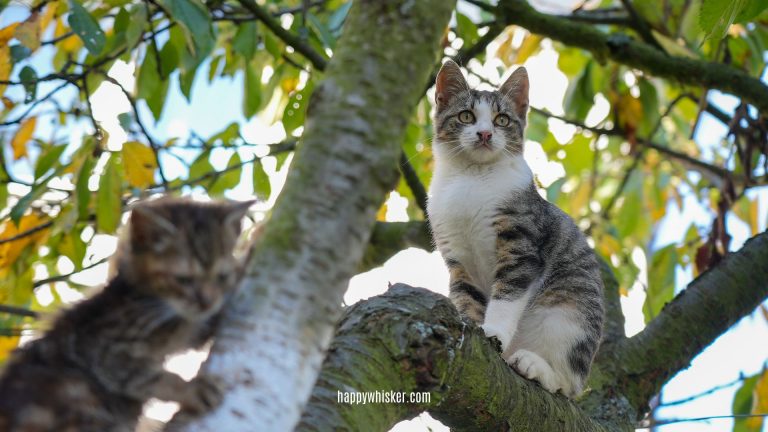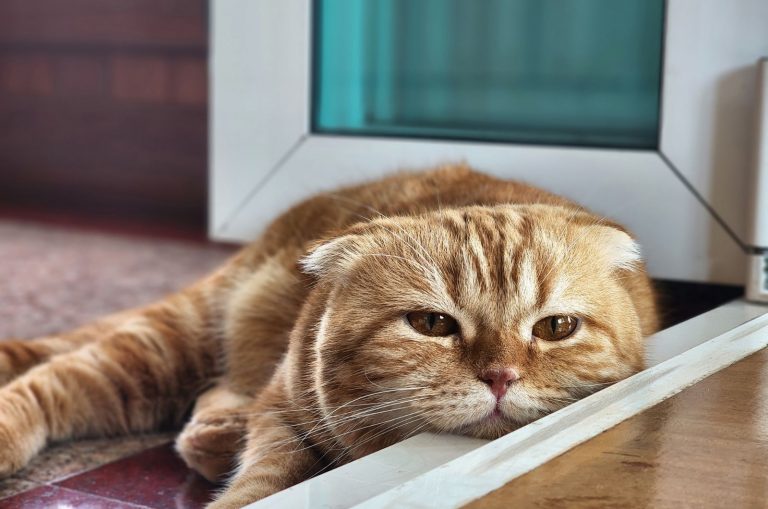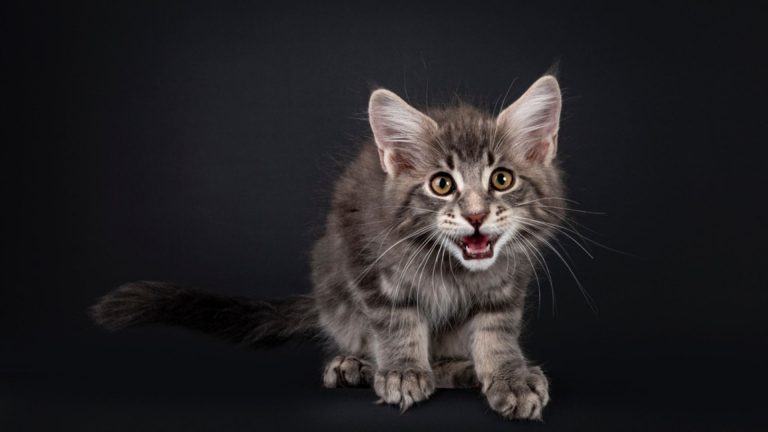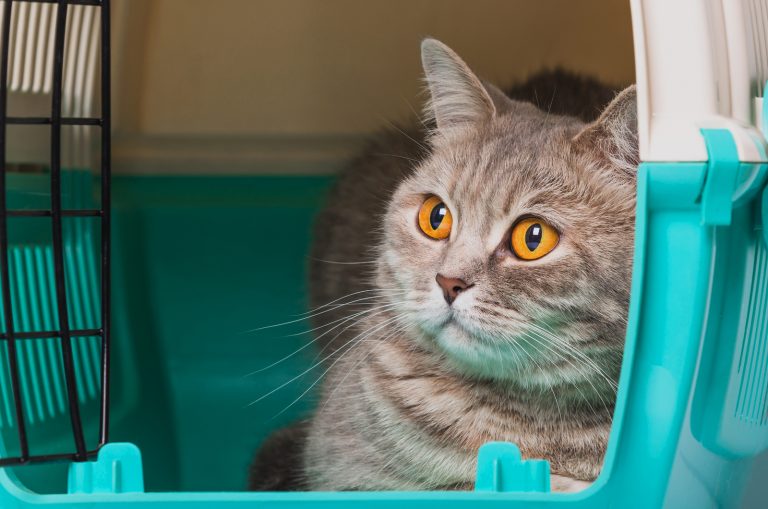Is Your Cat Snorting? Causes & Solutions For A Snorting Cat
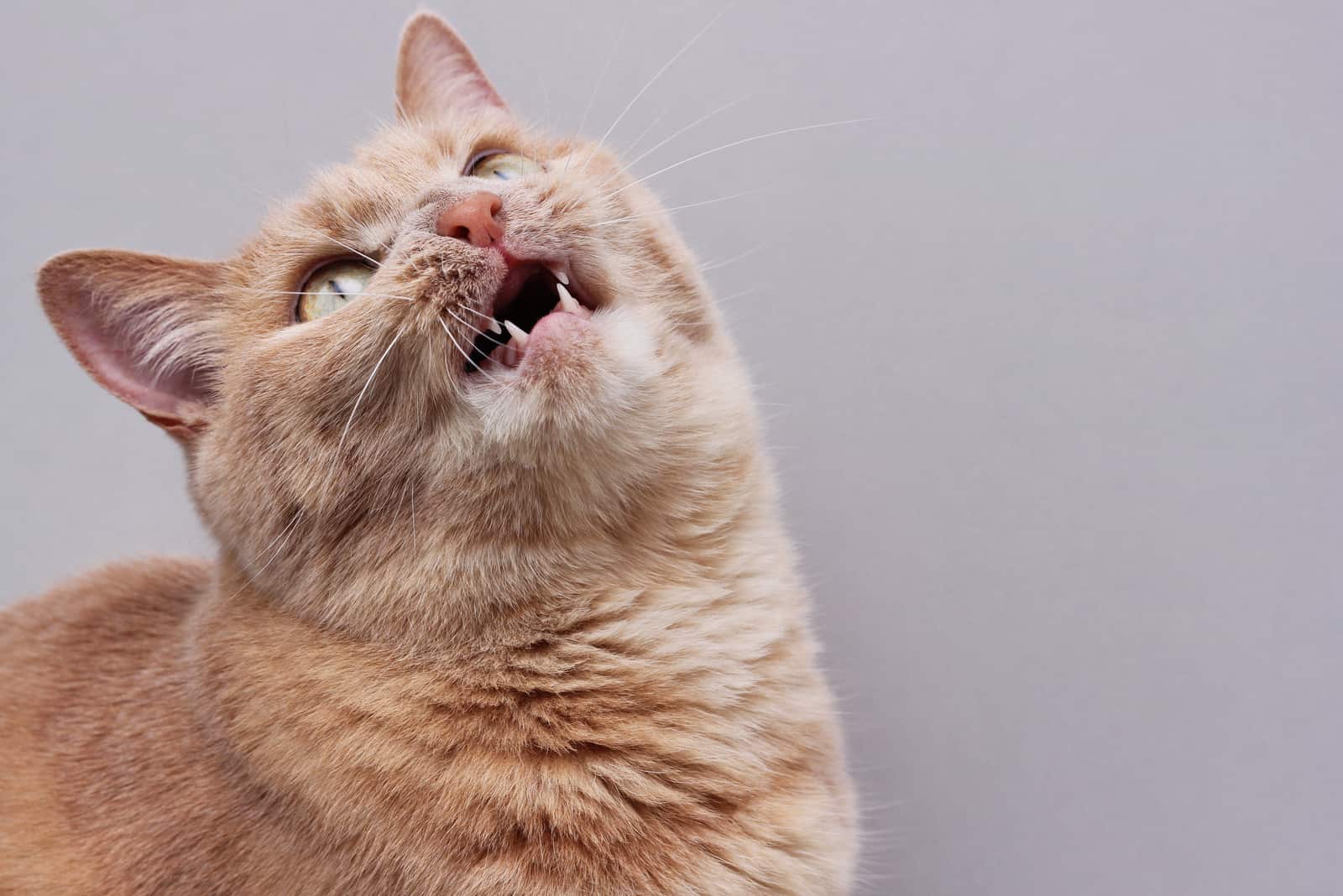
A snorting cat is not something you come across very often. Some pet owners find it adorable, while for others, it’s an immediate cause for concern. However, I can reassure you that your cat snorting is not likely to be anything serious!
Snorting is a voluntary act that your cat does in order to soothe an irritated nose or throat or scare off any potential threats. Sometimes these snorts are there simply due to your cat’s skull bone structure. Sometimes, snorting can be caused by a feline upper respiratory infection, feline chronic rhinitis, or nasal polyps.
Snorting should not be something your cat does frequently, so make sure you take a trip to the vet if you observe your cat snorting more than you’d expect.
Many confuse snorting, snoring, sneezing, and reverse sneezing, which are all different terms. If you want to learn how to differentiate between them, and understand the causes of your cat’s snores, then I suggest you keep on reading!
6 Causes Of A Snorting Cat
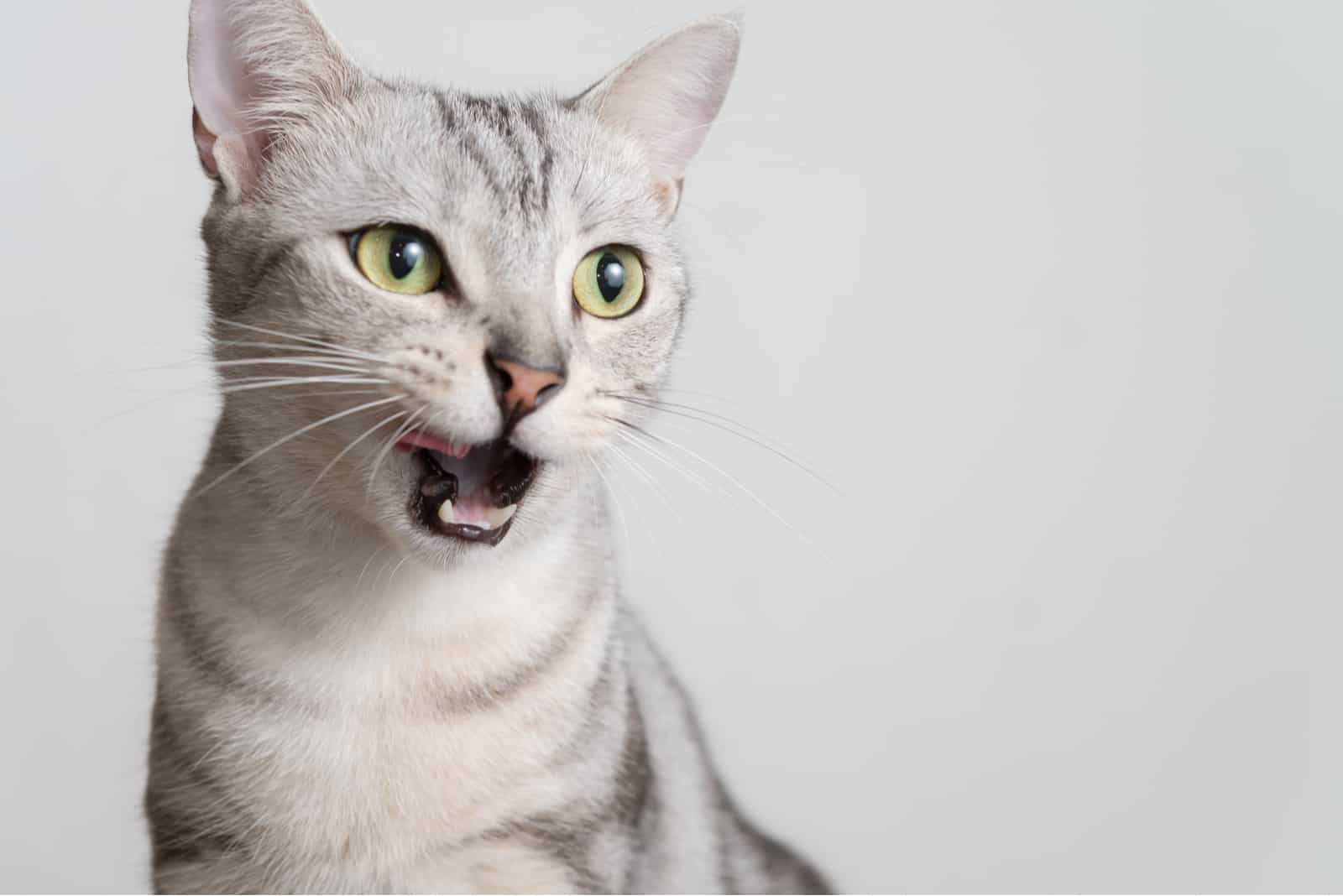
Below, I’ve listed the most probable reasons for your cat snorting. Without further ado, let’s begin!
1. Irritants In Your Cat’s Nose Or At The Back Of The Throat
One likely reason your kitty is snorting is that it is trying to get rid of something that’s irritating the back of its throat or nose (upper airways essentially). Snorting sounds, along with gagging and coughing, can occasionally accompany your cat’s attempts to clear something from its nose or throat.
Potential irritants include:
🐾 Pollen
🐾 Dust
🐾 Hairballs
🐾 A piece of grass
If this is the reason your kitty is snorting, do not worry – your cat will manage to get rid of whatever’s irritating its throat and nose.
Allergies on the other hand, are tricky. A cat simply cannot “get rid” of pollen or dust in its throat. Luckily, there are treatments for allergies, such as antihistamine medications. That should stop your cat’s allergies, and the snorting too!
2. Your Cat Might Have Chronic Rhinitis
Inflammation of the inner lining of a cat’s nose is called rhinitis. Rhinitis comes in two forms: allergic rhinitis and non-allergic rhinitis. Inflammation that lasts more than four consecutive weeks is regarded as chronic.
The most common symptoms of chronic feline rhinitis include:
🐾 Nasal discharge
🐾 Sneezing
🐾 Difficulty breathing
🐾 Breathing with an open mouth
The reason why a cat might snort is due to nasal discharge accumulating in the nose and obstructing the flow of air. If a cat cannot breathe properly, it might try to do so by snorting.
3. Your Cat Might Have A Case Of Feline URI
One possible reason your cat is snorting is that it’s nose is congested. Your cat might be trying to unblock her nasal passages by snorting.
A feline Upper Respiratory Infection (URI) resembles the human common cold in many ways. An infection of the sinuses, throat, and nasal mucosa is known as feline URI.
Most common symptoms of feline URI are:
🐾 Sneezing
🐾 Nasal discharge (runny nose)
🐾 Eye discharge
🐾 Weakness
🐾 Fever
A URI may be caused by bacteria or a virus. The most likely bacterial causes of feline URI are Bordetella and Chlamydophila felis. The most frequent causes of URI in cats are not bacterial infections, but rather viral infections caused by feline herpesvirus and feline calicivirus. 90% of all cases of cat URI are caused by one of these two viruses.
The viruses and bacteria that cause a URI are both very infectious. Secretions from the cat’s nose and eyes contain bacteria or virus particles. Your cat may contract a URI through close contact with another cat or even by consuming food or liquids from an infected cat’s bowl.
4. It Could Be Due To Nasopharyngeal Polyps
A pinkish-white lump of tissue known as a nasopharyngeal polyp can develop in the back of the throat, in the middle ear or in the Eustachian tube. In some cases, this mass will develop into a rounded growth that hangs into the nasal cavity’s rear airway.
Although the exact source of these polyps in cats is uncertain, it is thought that they are a reaction to infectious agents such as respiratory viruses.
Nasopharyngeal polyps can develop in cats of any age, but young adult cats are more likely to have them. At first, cats will not display any symptoms, but if the polyp grows to a specific size, the cat will start showing symptoms, such as:
🐾 Nasal discharge
🐾 Gagging
🐾 Voice changes
🐾 Sneezing
🐾 Breathing problems
5. It May Be Due To The Cat’s Breed
Cats with brachycephaly have skull bones that are shorter in length, which makes their faces and noses appear “pushed in”. The anatomy of the face is different because the face and nose have shorter bones. Your cat’s breathing can be affected by this and several other issues may arise as a result of it..
The most common brachycephalic cat breeds are:
🐾 Persian
🐾 Himalayan
🐾 Burmese
Breeds of cats that have brachycephaly tend to snort more frequently. This is because they are more susceptible to respiratory issues due to their short skulls, abnormalities of the nostrils, and soft palates.
Additionally, their trachea (windpipe) is more prone to collapsing. Essentially, normal airflow is prevented by abnormal nasal structures, causing nasal congestion that your kitty will try to solve by snorting.
6. Scaring Off Other Cats
Snorting can sometimes be a self-defense mechanism used by cats. A snort can scare off potential predators and other dangerous animals, such as those that might intrude on a cat’s territory or endanger it.
In these situations, snorting is used as a warning signal. These nonverbal cues are intended to ward off any potential dangers and keep your cat secure.
If your cat exhales air quickly, snorting can be heard. Cats can make this sound as early as three weeks old, but they only do it when absolutely necessary, usually in response to a threat.
Should You Worry About Your Cat Snorting?
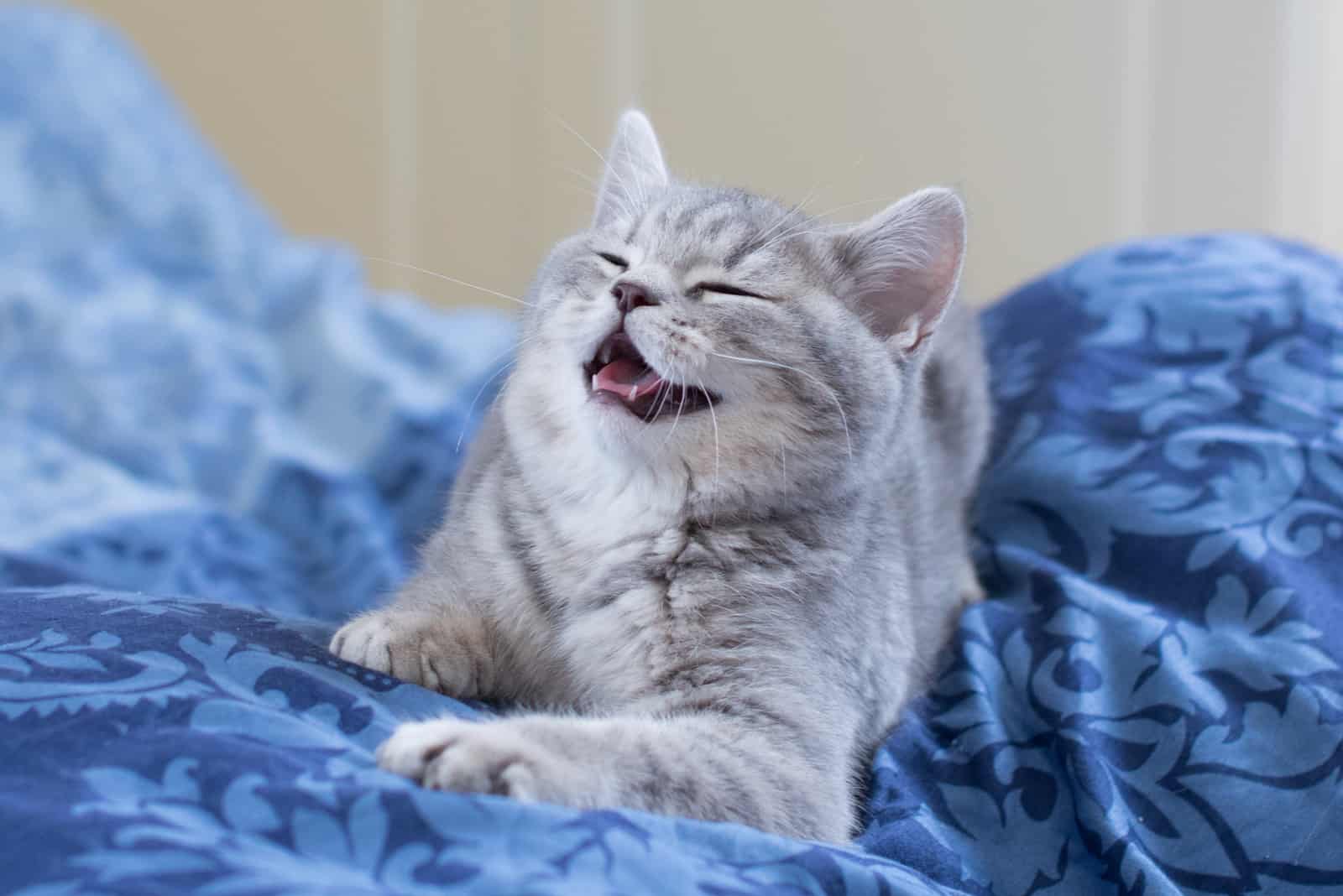
In the majority of cases, you shouldn’t worry about your kitty snorting. Below, I’ve listed possible causes of your kitty’s snorts as well as an explanation about whether you need to worry or not.
Pollen
If you think your cat is severely allergic to pollen, you should take your pet to the vet and they will most likely prescribe antihistamines in order to reduce the symptoms. If the reaction to pollen is mild, your cat may not need any medication and in that case, you should just let your cat be.
Dust
Dust is a common allergen and might be a cause of your cat’s snorting. If your cat is allergic to dust, you can opt for using medication to prevent severe symptoms from developing. If your cat is only mildly allergic, medication may not be needed.
Hairball
Hairballs might also cause your cat to snort, but they more commonly cause coughing and retching. If this is the cause, there is nothing you can do apart from keeping a watchful eye on your cat. If you observe your cat struggling with a hairball, there are specific foods you can give your cat in order to help your cat dislodge them.
Foreign bodies
If your cat is snorting to dislodge a foreign object from the back of its throat, you should simply let your cat get on with it. Your kitty will most likely succeed in its attempt, but if you observe it struggling for quite some time, it might be time for you to step in and help your cat. If that’s the case, I suggest you urgently visit the vet because having something stuck in the throat is a serious health risk.
Chronic rhinitis
Chronic rhinitis is a condition that requires medical attention. If you observe any of the symptoms of chronic rhinitis mentioned above, you should definitely visit the vet.
Feline URI
Feline URI can come in mild or severe forms. Mild forms may be resolved without any medication, while more severe forms will need a quick trip to the vet.
Nasopharyngeal polyps
Nasopharyngeal polyps need veterinary care, but they are not a huge health risk. They can be easily removed by a veterinary doctor, so you don’t need to worry about it.
Face shape
If the cause of your cat’s snorting is due to its bone structure, there is nothing you can do about it. There might be cause for concern if your kitty has severe respiratory issues, and in that case you should take it to the vet to see if there is anything you can do to treat the problem.
To scare off other cats
If your cat is snorting because they feel endangered, don’t worry about it. It’s just your cat’s instincts and there is nothing you can do.
Solutions For Your Kitty’s Snorts
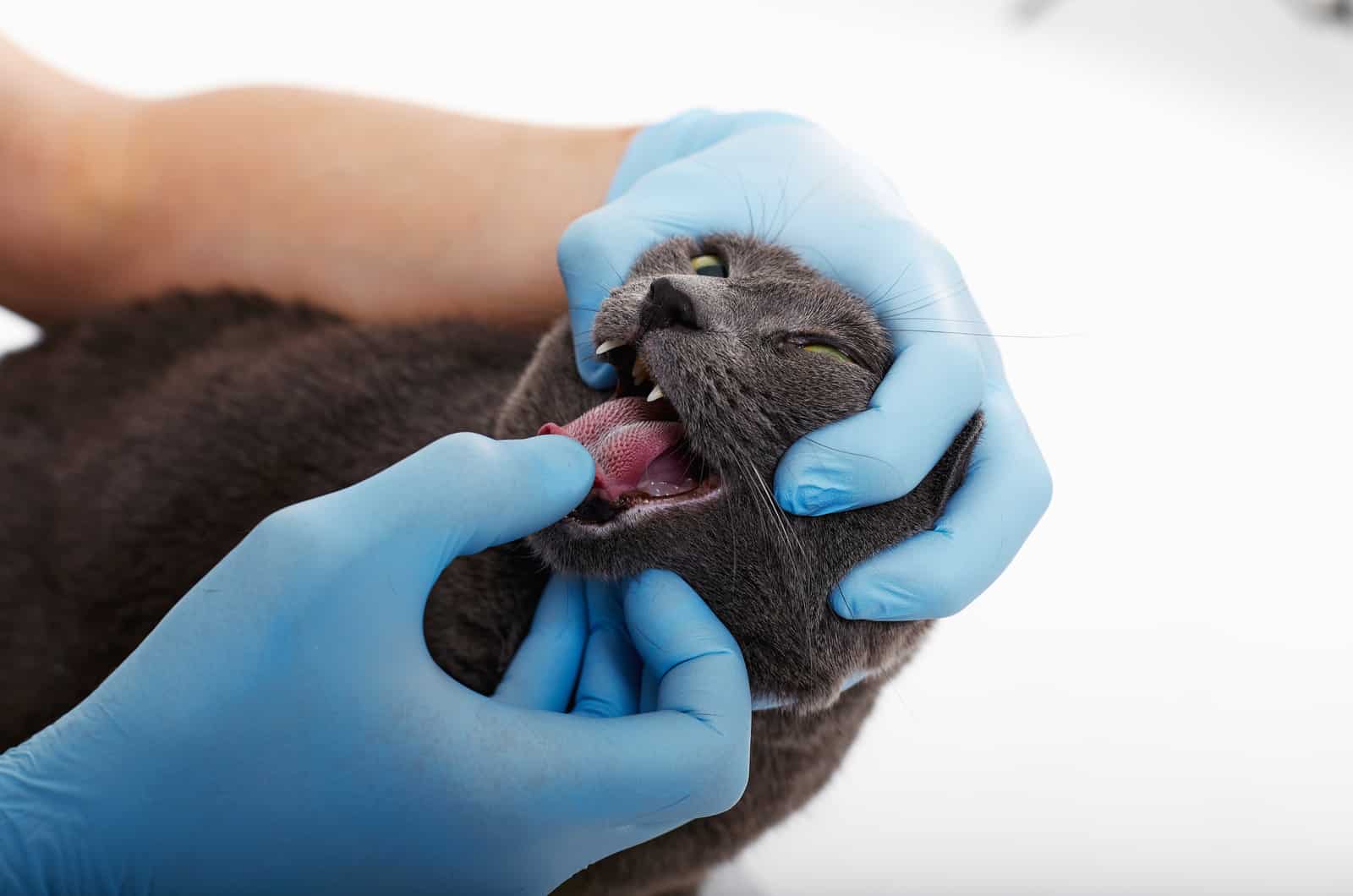
Snorting is not connected to any potentially serious medical illnesses or emergencies. Nevertheless, there are a few things you can consider doing:
1. Create An Irritant-Free Environment
If you know your cat is allergic to something that causes snorting, the best thing you can do is remove the allergen from your cat’s environment. Yes, this is not the most convenient thing for you, but it’s the best thing for your kitty. If that means cleaning your house more often than usual, so be it. Your pet will be grateful.
Another thing you can do is get your cat to take some allergy medication. Allergy medication relieves your cat’s allergy symptoms, hopefully to the point that your cat might not exhibit any symptoms at all. This will stop your cat from snorting, sneezing, and having watery eyes.
2. Visit A Vet
If your cat is snorting more than you consider normal, I suggest you go for a quick check-up at your vet. The cause of the snorting can be something that needs veterinary care, such as rhinitis, feline upper respiratory infection or nasopharyngeal polyps. All three of these health conditions need veterinary care, so make sure to go to the vet.
3. Remove Your Cat From A Hostile Environment
As you already know, snorting can be a way that your cat lets other cats or other pets know: “Hey, you’re on my territory!” If you observe your cat feeling threatened and snorting as a result of it, it’s best to remove your cat from that environment.
For example, if your neighbor’s cat comes over to your backyard and your cat perceives the visitor as a threat, it may begin snorting. In order to prevent a cat fight, it’s best to separate your cat from the potential threat.
4. Let You Cat Snort
In the majority of cases, the best thing you can do is let your cat snort, providing it is snorting only occasionally and for a very short period of time!
For example, if your cat has something briefly stuck in its throat, it’s best not to intervene and let your cat do its thing.
Snorting, Snoring, Sneezing & Reverse Sneezing: How Do They Differ?
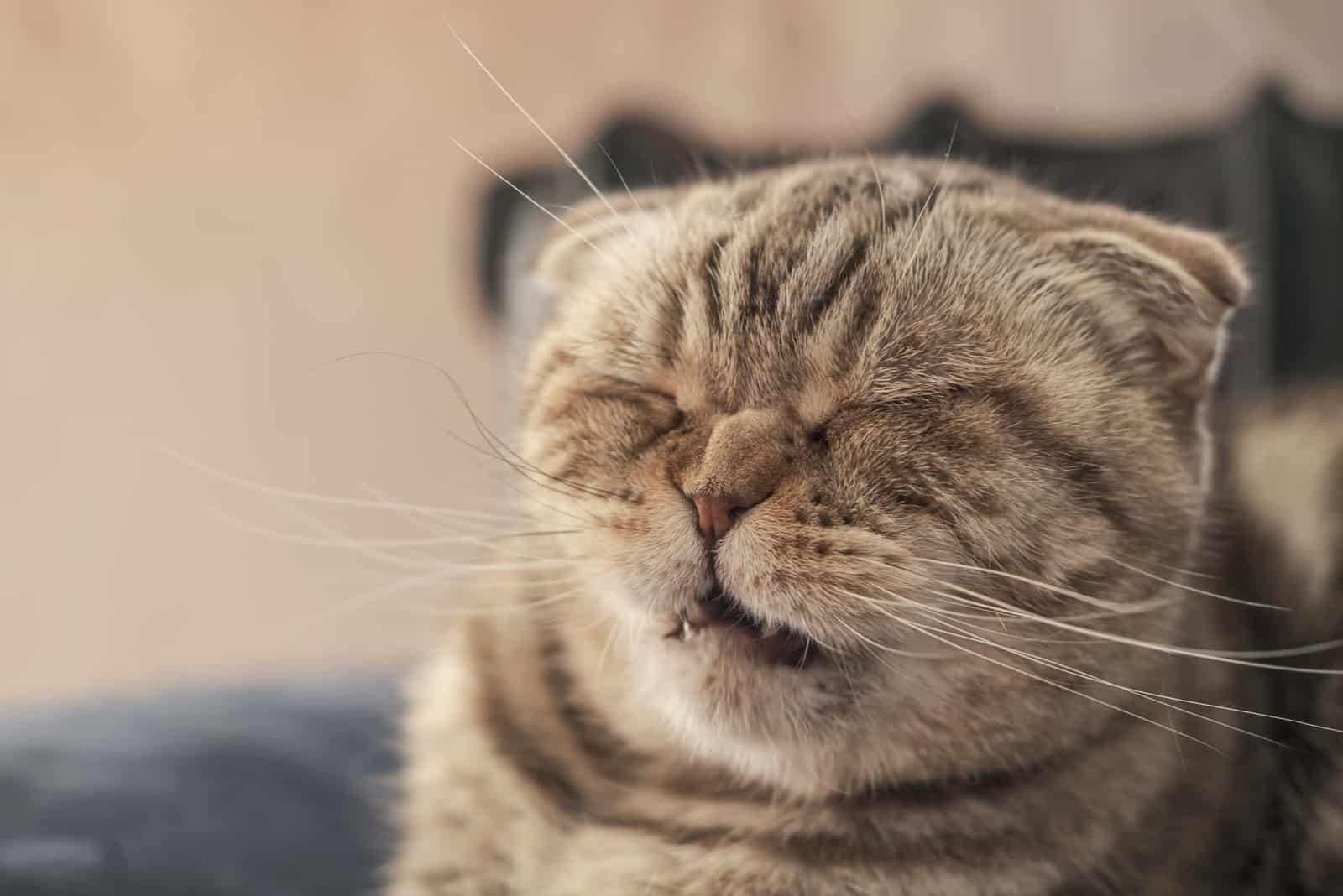
Snorting Vs Snoring
A snort and a snore are both noisy breathing patterns.
The primary distinction is that a snort is typically more vigorous and purposeful; an attempt to clear something from the airways.
On the other hand, snoring is a loud sound that is produced when air passes by throat tissues and causes them to vibrate. Every animal snores once in a while, but for some, it can become a chronic issue due to their face shape or their airways being too small.
Sneeze Vs Reverse Sneezing
An irritation in the nasal passages causes air to be pushed out of the nose during a typical sneeze.
A reverse sneezing involves a sudden intake of air through the nose. The cat will remain still while extending its head and neck and snort or make similar sounds.
FAQ
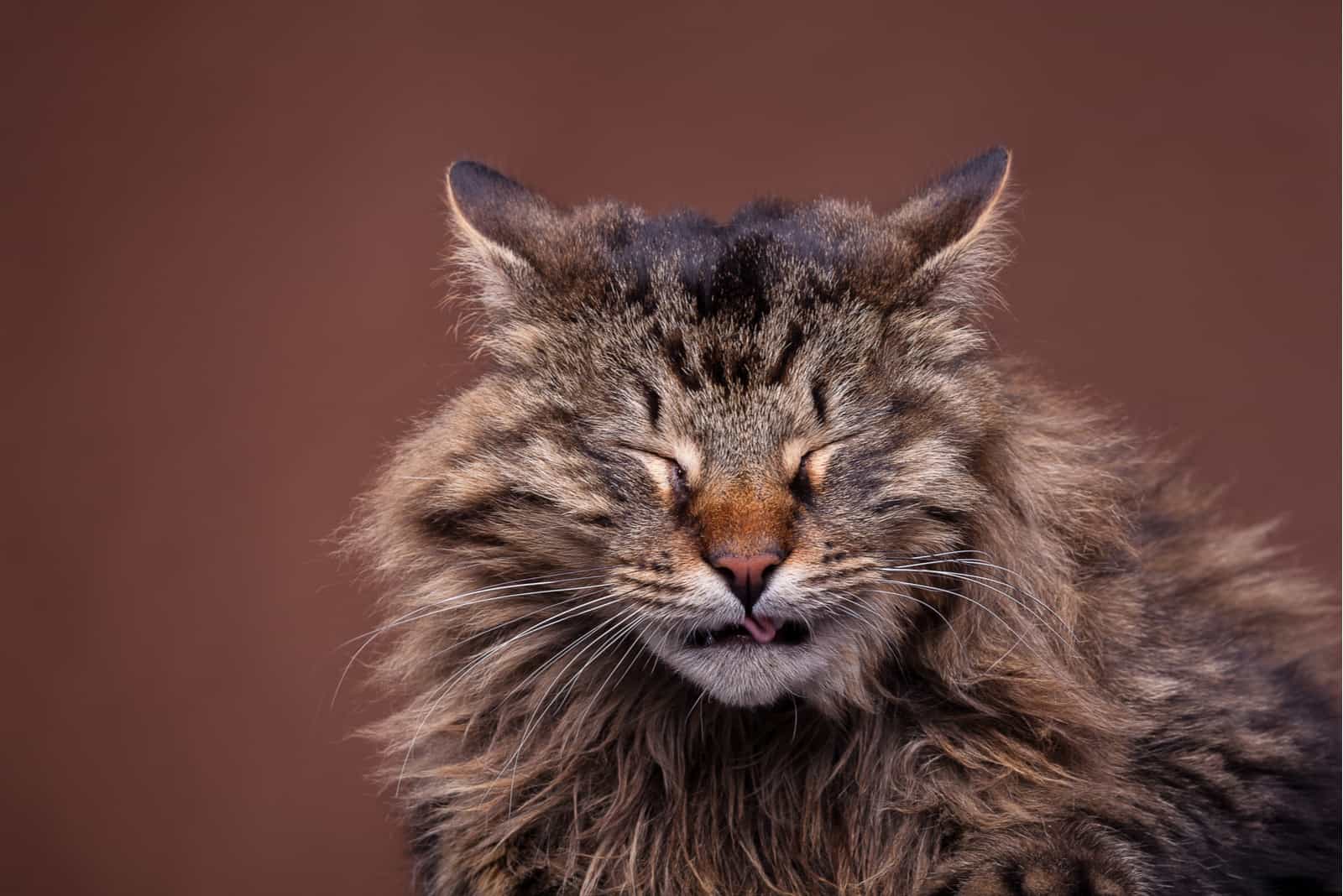
What Is A Snort?
According to Merriam Webster Dictionary, to snort is to force air violently through the nose with a rough harsh sound.
Snorting is more frequently observed in dogs, but cats can snort too!
Is It Normal For Cats To Snort?
Cats are able to snort, but it’s not something you’ll see them do very often. In the majority of cases, a snorting cat is nothing to worry about, although there are cases where snorting can point to more serious health issues such as feline upper respiratory infection, chronic rhinitis, and nasopharyngeal polyps.
Why Is My Cat Snorting When She Breathes?
There are a few reasons why your cat may be snorting while breathing, such as:
🐾 something irritating your kitty’s nose such as dust or a piece of grass
🐾 feline rhinitis
🐾 feline upper respiratory infection
🐾 nasopharyngeal polyps
🐾 your cat might be feeling threatened (by another animal for example), and snorting is the cat’s way of warning it to stay away.
🐾 your cat simply has a skull structure that causes respiratory difficulties, such as nasal congestion, and snorting is a way to clear the airways.
Why Is My Cat Snorting And Sneezing?
If your cat is both snorting and sneezing, this might be a sign your kitty has upper respiratory infection, nasopharyngeal polyps, or feline rhinitis. All three of these health issues include sneezing and snorting as a symptom.
It’s important to note that each of these health issues need to be taken seriously and even though they’re not extremely dangerous, it’s best to go for a quick check-up to the vet. You know what they say – better safe than sorry!
Why Is My Cat Hissing And Snorting?
Hissing is a form of self-defense. It is nearly often displayed by a cat who is feeling threatened, agitated, or victimized in some way.
When cats encounter a frightening circumstance with other animals or a predator, snorting may also be a defensive reaction.
If you put these two acts together, it can be concluded that a cat hissing and snorting as signs of self-defense.
It’s most likely that your cat has found itself surrounded with animals that might be a potential threat, and hissing and snorting are your cat’s way to tell them to stay away.
What Does A Congested Cat Sound Like?
The sound of a congested cat (whether it’s the nasal passages or the throat that are congested) may be associated with snoring or a deep purring sound. It’s difficult to explain, but once you hear it ,you will recognize it immediately.
What Are The Symptoms Of A Cat With An Upper Respiratory Infection?
The symptoms of a cat with a feline upper respiratory infection include the following:
🐾 Sneezing
🐾 Nasal Discharge
🐾 Eye Discharge
🐾 Runny Nose
🐾 Nasal congestion
🐾 Drooling
🐾 Breathing through mouth
🐾 Loss of appetite
🐾 Fever
🐾 Weakness
A feline URI can be mild, but it can also develop into a more serious form if left untreated for a while. So make sure you monitor the symptoms and treat a feline URI on time.
What Is The Best Way To Help My Cat With A Cold?
Upper respiratory tract infections in cats are usually treated symptomatically at home. It’s recommended that the cat should spend time in a room with humid air (such as in the shower or a room with a humidifier). Make sure your cat eats and drinks fluid, as well as staying warm and cozy.
Treatment for cats with more severe forms of a cat cold will include antibiotics or antiviral drugs. Of course, this is something your vet will prescribe and you should not give the cat medication by yourself. Even if you mean well, it is likely to cause your pet more harm than benefit.
What Are The Symptoms Of Cat Allergies?
Most common symptoms of cat allergies are:
🐾 Sneezing
🐾 Watery eyes
🐾 Coughing
🐾 Wheezing
🐾 Itchy eyes
🐾 Red skin
Some cats have very mild symptoms as a result of their allergies, others have extremely serious symptoms that can even be life-threatening.
Because of this, it’s important to take your cat’s allergies seriously. Find out if your cat is mildly sensitive or overly-sensitive to certain allergens, and ask your vet for the best treatment.
What Is The Difference Between Snorting And Sneezing?
The main difference between the snorting and sneezing is that snorting is a voluntary act, while sneezing is not.
Think about when you sneeze, can you cause it or stop it? You cannot. What about snorting? You’re the one causing the snorting, and the same goes for cats.
Final Thoughts
Having a snorting cat in the household might cause concern for some pet owners. After all, your pet’s health and wellness is the most important thing, so it’s understandable to be a bit worried when they start doing something odd.
There are a few potential causes of your cat’s snorting, such as having something stuck or irritating your cat’s throat, your cat feeling threatened and snorting in self-defense, your kitty having a skull structure that causes respiratory issues and thus snorting, or your pet having feline rhinitis, feline upper respiratory infection, or nasopharyngeal polyps.
In the vast majority of cases, your cat snorting is nothing to be worried about. Health issues such as feline URI, rhinitis, or nasal polyps can pose a serious threat to your kitty’s health. If you observe your cat producing a snorting noise too frequently, I suggest you go to the vet.
Knowing the cause of your cat’s snorting can give you reassurance that nothing major is wrong. Alternatively, if you discover that your cat is snorting as a result of a health problem, you can start solving your cat’s issues and find the appropriate medication to guarantee a long and healthy life for your kitty, filled with happy meows and purrs!
Related Articles:
Cat Suddenly Lethargic And Weak – Causes & Treatment Options

